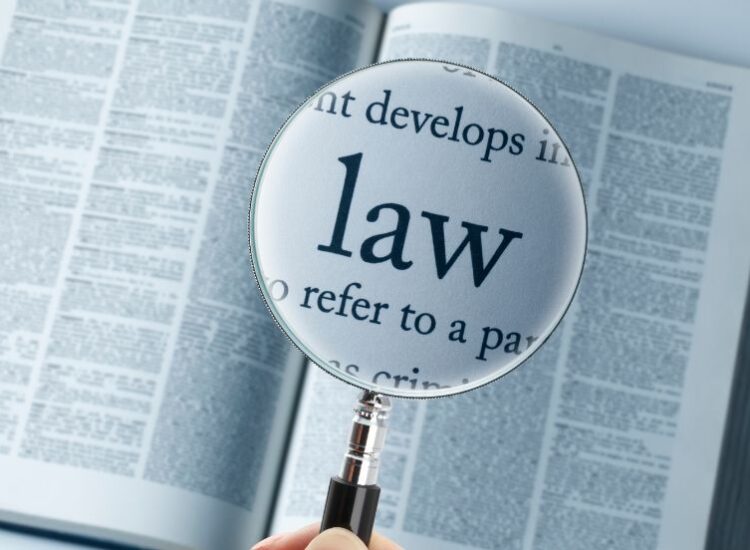The Ultimate Handbook on Financial Planning for Entrepreneurs
Running a small business comes with a mix of excitement and challenges, but one thing you can’t afford to overlook is insurance. Finding the right business insurance for your small business can protect you from unexpected setbacks and ensure that your venture is able to thrive even in the face of adversity. With so many coverage options, navigating the world of small business insurance can seem daunting. This guide is here to demystify the process and provide practical insights into securing the best policies for your needs.
Toc

Why Business Insurance is Crucial for Small Business Success
Insurance isn’t just an optional expense—it’s a crucial part of your business strategy. For small businesses, the risks are especially high. From property damage caused by fires or floods to lawsuits or employee-related issues, these challenges can arise unexpectedly and have devastating financial consequences. Without proper insurance coverage, a single unfortunate event could wipe out your financial reserves, leaving your business vulnerable and struggling to recover.
Protecting Against Liability Risks
Liability is one of the most significant risks small business owners face. A customer slipping and falling in your store, a supplier raising a dispute over a contract, or a product defect leading to legal claims—all of these are common scenarios that can result in lawsuits. Not only are lawsuits costly in terms of legal fees and potential settlements, but they are also time-consuming, detracting focus from running your business. General liability insurance is designed to safeguard your business from claims of bodily injury or property damage, ensuring your financial stability. Investing in this coverage means you can focus on growing your business with peace of mind knowing you are protected.
Business Continuity in the Face of the Unexpected
Unforeseen events can threaten the survival of any business. Natural disasters like hurricanes, floods, or earthquakes can cause significant property damage. Similarly, cyberattacks, which are increasingly targeting small businesses, can disrupt your operations and compromise sensitive customer data. Even theft or vandalism can lead to unexpected expenses and operational downtime. With the right insurance plan, such as business interruption insurance, you’re protected against lost income during periods when you can’t operate. This type of coverage helps cover ongoing expenses like rent, employee wages, and utility bills, allowing your business to recover and resume operations without suffering crippling losses. It’s an essential safety net that ensures your business can weather the unexpected and continue to thrive.
By understanding and investing in the right insurance policies, you’re not just protecting your business from risks—you’re ensuring its resilience and future success.
Types of Business Insurance for Small Business
Every small business is unique, and the right combination of insurance coverage depends on the nature of your work, operational risks, and industry regulations. Identifying the appropriate types of business insurance is crucial to protect your livelihood and ensure your business can handle unexpected events without significant financial strain. Below are the essential types of business insurance every small business owner should consider.
General Liability Insurance
This is often the first and most critical type of coverage for small businesses. General liability insurance protects against claims of bodily injury, property damage, and even advertising infractions. For instance, if a customer slips and falls at your business location or if an ad campaign leads to claims of defamation, general liability has you covered, keeping your business safe from costly lawsuits and reputational harm.
Why General Liability Insurance is a Must-Have
- Legal Defense Costs – Covers attorney fees, settlements, and court expenses if a lawsuit arises, helping you avoid financial stress during litigation.
- Widespread Applicability – It’s relevant for almost every type of business, whether you’re running a retail shop, a service-based business, or working as a home-based entrepreneur. Regardless of your industry, having this safety net can protect you from common risks.
Ideal Scenarios for Small Businesses
Even if your business seems low-risk, accidents happen more often than you might think. A spilled coffee leading to a customer’s injury at your workspace or a contractor damaging a client’s property could result in substantial out-of-pocket expenses if you’re uninsured. General liability insurance ensures you’re prepared, helping you focus on running your business with peace of mind.
1. https://dalatfarmer.vn/mmoga-understanding-business-insurance-liability/
2. https://dalatfarmer.vn/mmoga-the-ultimate-toolkit-for-scaling-operations-in-growing-companies/
3. https://dalatfarmer.vn/mmoga-a-comprehensive-guide-to-small-business-insurance/
4. https://dalatfarmer.vn/mmoga-comprehensive-guide-to-finding-the-best-business-insurance-near-me/
5. https://dalatfarmer.vn/mmoga-the-role-of-liability-coverage-in-protecting-your-enterprise/
Commercial Property Insurance
Whether you own a storefront, an office, or simply store inventory in a rented space, property insurance is essential for protecting your physical assets from potential damages like fires, floods, theft, or vandalism. Without it, replacing damaged inventory or repairing your workspace could put a severe financial strain on your business.
What Does Commercial Property Insurance Cover?
- Buildings and Structures – Covers physical buildings or spaces owned by your business, whether it’s a retail store, office, or warehouse.
- Equipment and Tools – Protects essential equipment like computers, machinery, and tools needed to keep your business running.
- Inventory and Supplies – Insures the stock and materials your business relies on for daily operations, ensuring that unexpected losses don’t disrupt your workflow.
Tailoring Property Coverage for Your Business
Understanding the specific risks tied to your business’s location and operations is critical. For instance, a shop located in a flood-prone area may also require additional flood insurance to ensure complete protection. Similarly, businesses in high-crime areas might need enhanced coverage for theft or vandalism. Taking the time to assess your risks and tailor your coverage can save you significant stress and money in the long run.
The Importance of Comprehensive Coverage
While these are two of the most essential types of insurance for small businesses, they are just the starting point. Depending on your industry, you might also need professional liability insurance, workers’ compensation, or even cyber liability insurance. Evaluating your business’s unique needs and consulting with an insurance expert can help you create a comprehensive plan to safeguard your operations, employees, and customers. Investing in the right insurance coverage is not just a safety net—it’s a vital step toward building a resilient and successful business.
Additional Types of Business Insurance You Should Explore
Beyond the basics, small business owners often require specialized insurance coverage tailored to their unique needs and risks. This ensures they’re adequately protected in various scenarios that could impact their operations, employees, or clients.

Workers’ Compensation Insurance
If you have employees, workers’ compensation insurance is often a legal requirement, depending on your state or country. This coverage is designed to handle medical expenses and lost wages for employees who suffer work-related injuries or illnesses. It not only helps you comply with legal mandates but also demonstrates your commitment to employee safety and well-being, fostering trust and security within your workforce.
Why It’s Essential for Small Employers
Workplace accidents can happen in any industry, even in environments that seem relatively safe. For example, repetitive strain injuries in an office setting or slips and falls in a restaurant kitchen can occur unexpectedly. Workers’ compensation insurance ensures that you’re prepared for these incidents, shielding your business from financial strain while protecting your employees from hardships caused by workplace injuries.
Simplifying the Claims Process
Having a clear and efficient process for workers’ compensation claims benefits everyone involved. Employees can access necessary medical care and wage replacements without delays, reducing their stress during a challenging time. For employers, streamlined claims processes minimize downtime, prevent miscommunication, and help maintain productivity. Partnering with an insurance provider experienced in handling workers’ compensation claims can make all the difference.
Professional Liability Insurance
Also referred to as errors and omissions (E&O) insurance, professional liability insurance is critical for service-based businesses and professionals. It provides protection against claims of negligence, mistakes, or failure to deliver services as promised. Without this coverage, a single oversight could lead to costly lawsuits and damage to your reputation.
Examples of When You Might Need Professional Liability Coverage
Professional liability insurance comes into play in a variety of scenarios. For example:
- A consultant gives advice that unintentionally causes financial harm to a client.
- A graphic designer misses a major project deadline, resulting in contract disputes or lost revenue for the client.
- An IT service provider fails to resolve a technical issue, leading to extended downtime for their client’s operations.
This type of coverage provides peace of mind, knowing your business is protected against costly legal claims stemming from human errors or unforeseen problems.
1. https://dalatfarmer.vn/mmoga-a-comprehensive-guide-to-small-business-insurance/
2. https://dalatfarmer.vn/mmoga-the-role-of-liability-coverage-in-protecting-your-enterprise/
3. https://dalatfarmer.vn/mmoga-the-ultimate-toolkit-for-scaling-operations-in-growing-companies/
4. https://dalatfarmer.vn/mmoga-comprehensive-guide-to-finding-the-best-business-insurance-near-me/
5. https://dalatfarmer.vn/mmoga-understanding-business-insurance-liability/
Cyber Liability Insurance
In today’s digital age, small businesses face growing risks from cyber threats such as data breaches, hacking attempts, and customer information leaks. Cyber liability insurance provides a safety net, helping you recover from the financial and reputational damages that can result from cyberattacks.
What Does Cyber Liability Insurance Cover?
Cyber liability insurance typically includes coverage for:
- Customer notification expenses after a data breach, ensuring your clients are informed promptly and transparently.
- Credit monitoring services to protect affected customers from potential identity theft or fraud.
- Legal costs stemming from cyber-related lawsuits, helping you defend your business against claims of negligence in safeguarding customer data.
Additionally, many policies support your business’s recovery efforts, such as hiring IT specialists to identify vulnerabilities and implementing stronger security measures.
As technology becomes increasingly integrated into daily operations, cyber liability insurance is no longer a luxury—it’s a necessity. Businesses of all sizes, from e-commerce retailers to local service providers, can benefit from this crucial layer of protection.
By understanding and investing in specialized coverage like workers’ compensation, professional liability, and cyber liability insurance, small business owners can safeguard their operations, employees, and clients against a range of potential risks. The right mix of insurance policies ensures that your business is well-prepared to navigate challenges, allowing you to focus on growth and success.
Choosing the Right Insurance Coverage for Your Small Business
Deciding on the best business insurance for your small business is a crucial step in protecting your venture. It requires a thorough analysis of your risks and partnering with reliable insurance providers to ensure you’re fully covered. The right insurance not only safeguards your business but also provides peace of mind, allowing you to focus on growth and long-term success. Here are some important steps to guide you:

- Assess Your Risks – Take the time to understand the unique risks associated with your business. Consider factors like your industry, location, operations, and the nature of your products or services. For example, a retail store may need protection against theft, while a service-based business might prioritize liability coverage. Recognizing your risks will help you choose the right policies.
- Bundle Policies – Many insurance providers offer bundled policies, such as a Business Owner’s Policy (BOP). This option combines essential coverages like general liability and property insurance into a single, more affordable package. Bundling not only saves money but also simplifies managing your policies.
- Shop Around – Don’t settle for the first quote you receive. Reach out to multiple insurers, compare quotes, and evaluate policy details. Look for balance—finding the best deal without sacrificing the level of coverage your business needs. Consulting with an insurance broker can help streamline this process and ensure you’re getting the best value.
Taking the time to secure the right business insurance is an investment in your company’s future. With proper coverage in place, you’ll be better equipped to navigate challenges and focus on building a thriving, successful business.
Final Thoughts
The demands of running a small business are high, with countless responsibilities and challenges to manage daily. Having the right insurance, however, can alleviate a significant amount of potential stress and provide peace of mind. Business insurance not only protects your assets, such as property, equipment, and inventory, but it also serves as a crucial safety net, ensuring your business can weather unexpected events like natural disasters, lawsuits, or other disruptions. Whether it’s protecting against liability claims or safeguarding your income during unforeseen downtime, the right coverage can make all the difference. Business insurance for small businesses isn’t just a formality—it’s a proactive, smart investment in the long-term health and success of your venture. By securing the right coverage today, you can focus on what truly matters: growing your business, supporting your team, and delivering value to your customers without unnecessary worry.










